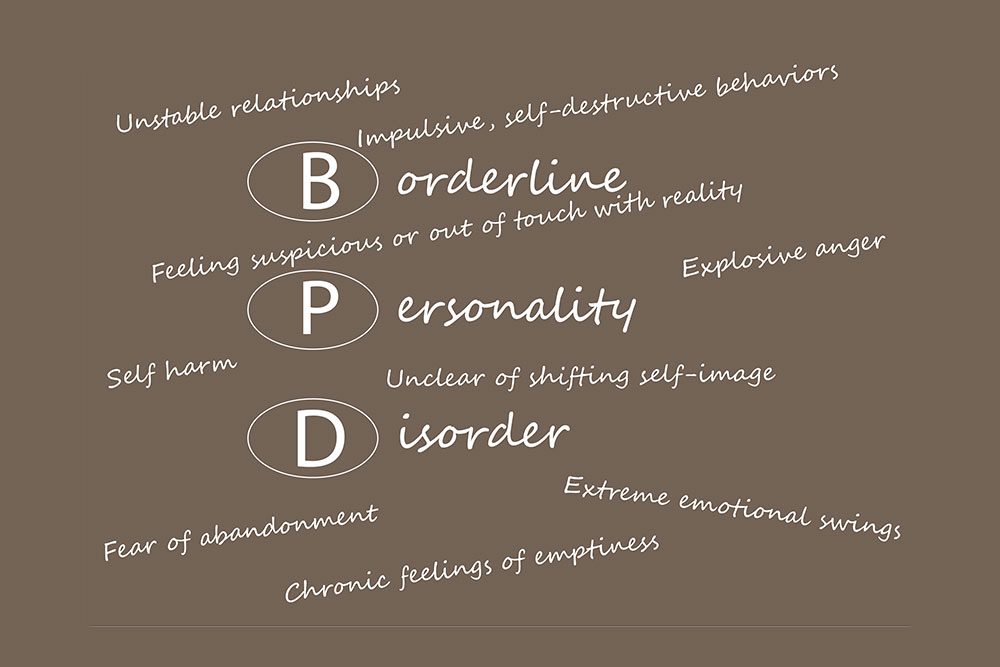
Employers have a legal duty to provide mental health support for their employees. Recognising common mental health disorders will help keep your team safe if you run a business.
It’s not always easy to know if someone is struggling with a mental health problem or what you can do about it. What is the most painful mental illness? Many experts believe it’s borderline personality disorder. In this article, we look at how borderline personality disorder affects people. Keep reading to learn what you can do to help anyone suffering from it.
What is Borderline Personality Disorder
Borderline Personality Disorder (BPD) is a recognised mental health condition that affects the way a person thinks, feels and behaves. People with BPD experience long-term behaviour patterns and inner experiences that deviate from cultural expectations.
BPD is marked by ongoing instability in emotions, self-image and relationships. According to the DSM-5, BPD is ”a pervasive pattern of instability of interpersonal relationships, self-image, and affects, and marked impulsivity.” DSM-5 also defines the diagnostic criteria for BPD, which include recurrent suicidal behaviour, chronic feelings of emptiness, impulsivity, intense anger, and dissociation.
The exact cause of BPD is not fully understood. Research suggests that a combination of genetic, brain and environmental factors, such as early life trauma, may contribute to its development.
Why Borderline Personality Disorder Most Painful Mental Illness
Experts have long considered borderline personality disorder a particularly painful mental health disorder. The Diagnostic and Statistical Manual of Mental Disorders (DSM) describes it as:
- Debilitating
- Potentially lethal
- Causing significant emotional suffering
People that have BPD often experience intense emotions. They can think and behave in ways that are not normal. People with borderline personality disorder find that it impacts every facet of their lives. The condition can damage relationships with family, friends, and colleagues. It can lead to self-harm or suicide.
Approximately 2.4 in every 100 people in the UK struggle with borderline personality disorder, as shown by the most recent figures collected by the Adult Psychiatric Morbidity Survey (APMS). Due to the stigma surrounding mental health issues, the actual figure of people with severe personality disorders could be higher.

Signs That Someone Has Borderline Personality Disorder
Unstable Sense of Self
People that have BPD feel disconnected from others. They have problems developing a true sense of self or self-worth. They may often change their behaviour drastically.
Intense Emotional Reactions
Intense emotional reactions are common in people with borderline personality disorder. They can react in a way others may perceive as unreasonable. Intense emotional states can last a few hours, days or even weeks. Symptoms of BPD include feelings of:
- Loss
- Emptiness
- Intense anger
- Paranoia
- Dissociation
Feelings of Abandonment
A person with BPD is often worried about abandonment. They can feel betrayed easily. Many find it challenging to maintain stable relationships in their lives, despite being continuously worried about being abandoned.
Impulsive, Risky Behaviour
Impulsive, harmful behaviours are expected. A person with borderline personality disorder is likely to:
- Overeat
- Self-harm
- Be violent
- Drive dangerously
- Engage in risky sexual behaviours
- Abuse drugs or alcohol
How to Help Someone with Borderline Personality Disorder
Those who have borderline personality disorder are often overly sensitive. They find it difficult to cope with their intense negative feelings. It’s estimated that 10% of people diagnosed with BPD commit suicide.
Be Patient, Calm, and Supportive
Knowing what to do cannot be easy if someone close to you has BPD. People with the condition can be hard to deal with. The intensity of their emotions can be exhausting.
Remind them of their positive qualities. Try to avoid issues or circumstances that may trigger negative reactions. Don’t be judgmental and always be calm and patient with the person.
Set Clear Boundaries and Expectations
Clear boundaries and clearly stated expectations can help people with BPD. This allows them to manage their fear of abandonment. Make plans early so they know what to expect. Ensure you give the person lots of notice and reassurance if you need to cancel.
Gently Guide Them Toward Treatment
It’s essential to be aware of a person’s mental health issues. Being compassionate and understanding will help you to guide them towards treatment. People with borderline personality disorder find that psychotherapy treatments help them to control their condition. The first step is to speak with a GP, who can then make a referral to a mental health professional. There are also numerous mental health support groups, such as Mind, which can assist people in getting help.
Other Common Painful Mental Health Illnesses
It’s not possible to definitively compare mental health illnesses in terms of painfulness. While Borderline Personality Disorder is often considered the most painful mental health disorder, other mental health problems can also be severely painful.
The most common mental health problems that people face are to stress, depression and anxiety. These account for 46% of work-related ill health in the UK, according to the HSE.
Many people also struggle with severe mental health disorders, such as:
- Psychotic disorders such as schizophrenia
- Bipolar disorder
- Eating disorders
- Post-traumatic stress disorder (PTSD)
These severe health conditions can result in erratic behaviour. Sometimes, a person may commit acts of self-harm or harm others. How painful a mental illness is can ultimately only be guaged by the person going through it.
Mental Health at Work - Your Obligations as an Employer
By law, employers have to ensure that the physical health of their employees is protected. This obligation also extends to safeguarding the mental health of their teams. Employers must take steps to protect employees from mental health discrimination. Anyone who has a mental illness should be treated fairly and with dignity.
You must know about the most common mental health disorders to meet your legal obligations. The knowledge will enable you to recognise signs that someone is experiencing a mental health issue and help them get the treatment they need.
How to Raise Mental Health Awareness in the Workplace
It’s not always easy for people with mental health issues to find the help they need. The stigma surrounding mental health issues stops people from asking for help. Stigma can also stop sufferers from helping others.
Raising mental health awareness in the workplace can combat the stigma around mental health issues. Our Mental Health Awareness Training course teaches participants how to recognise the signs of mental illness. Trainees will learn to provide support and access help for themselves and others.






















